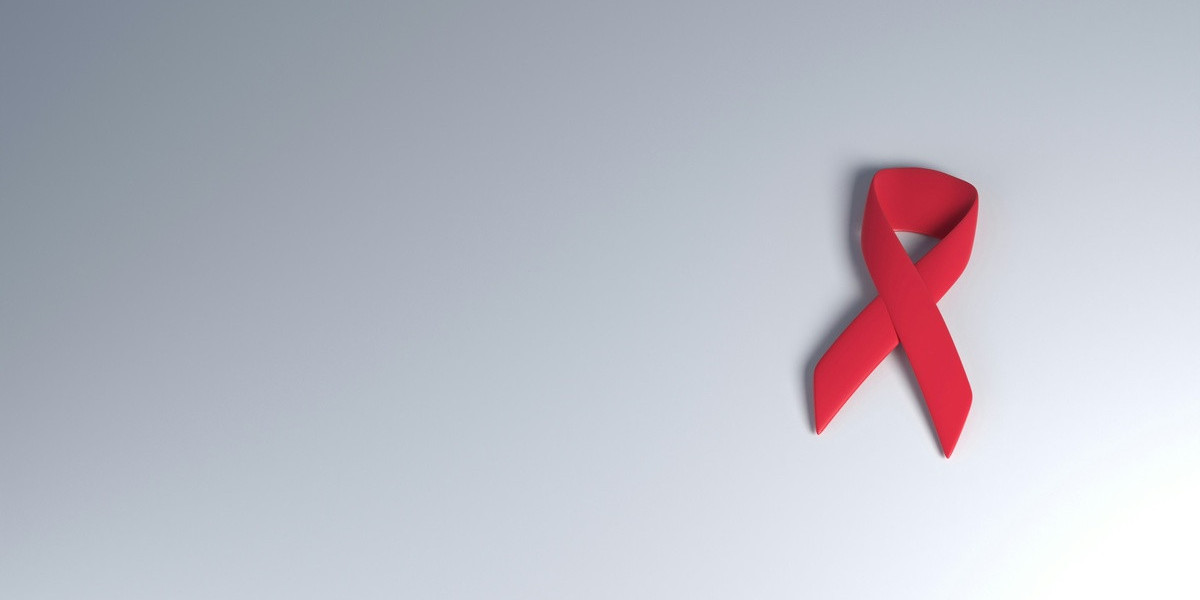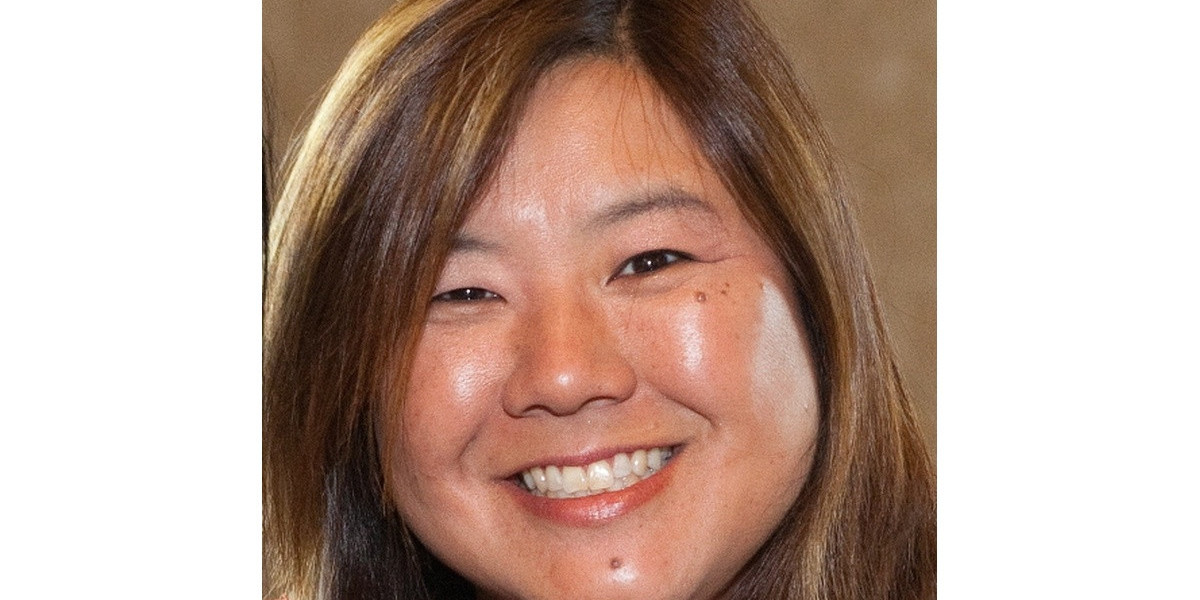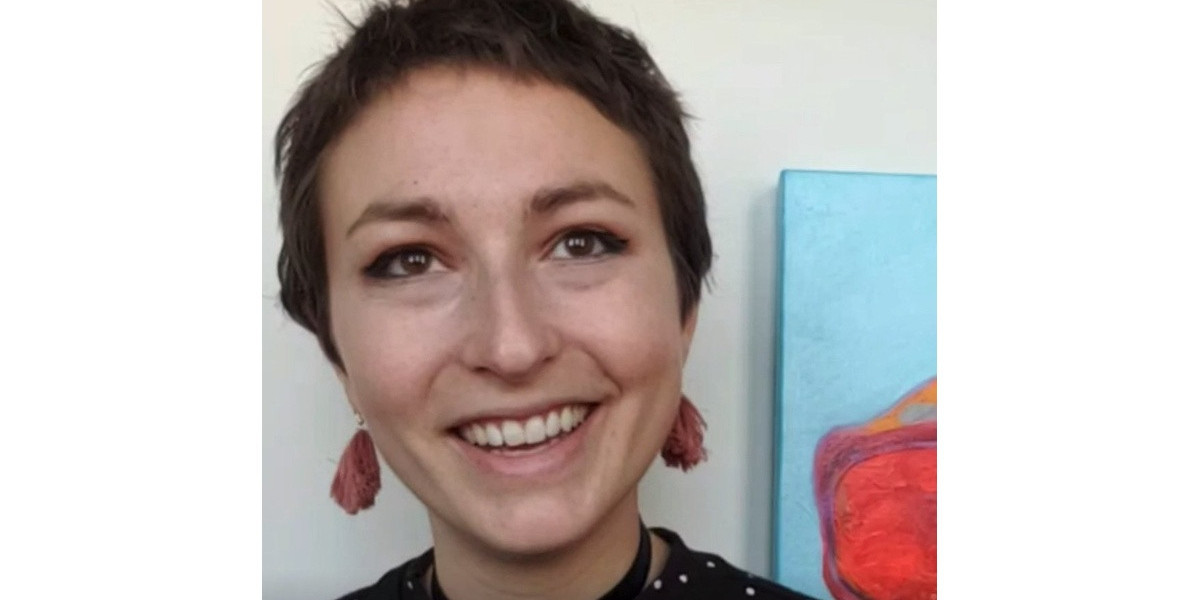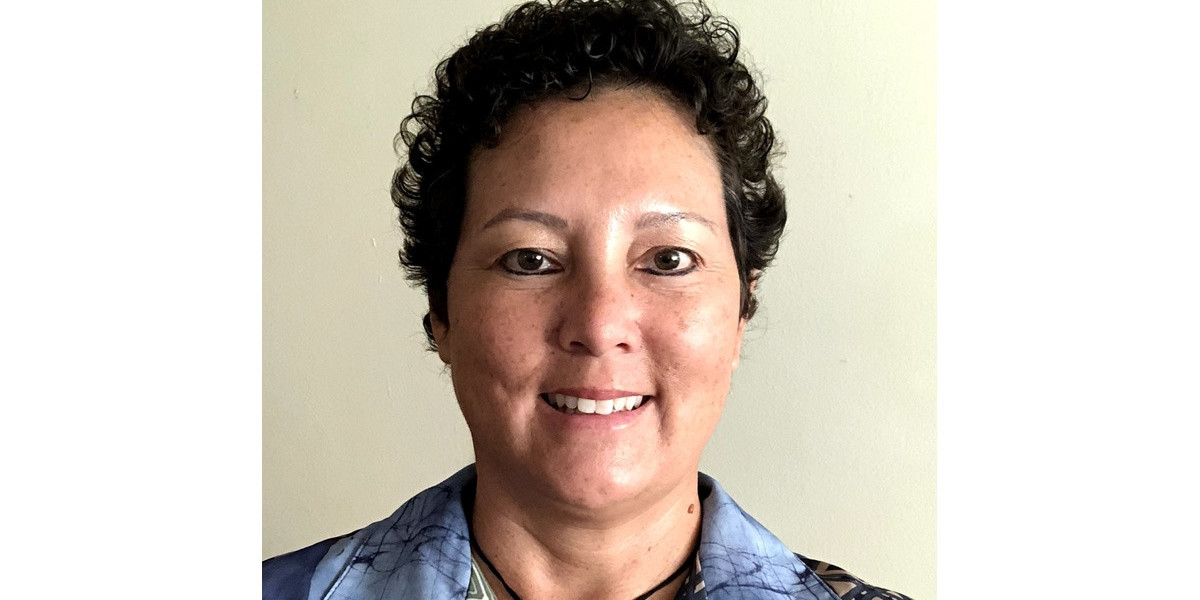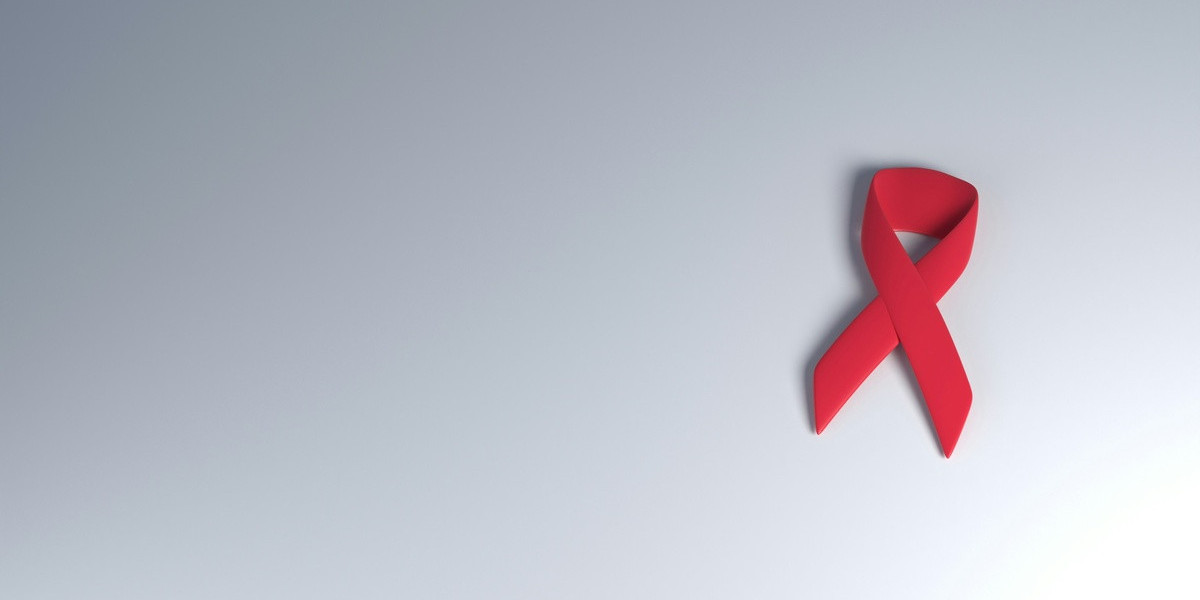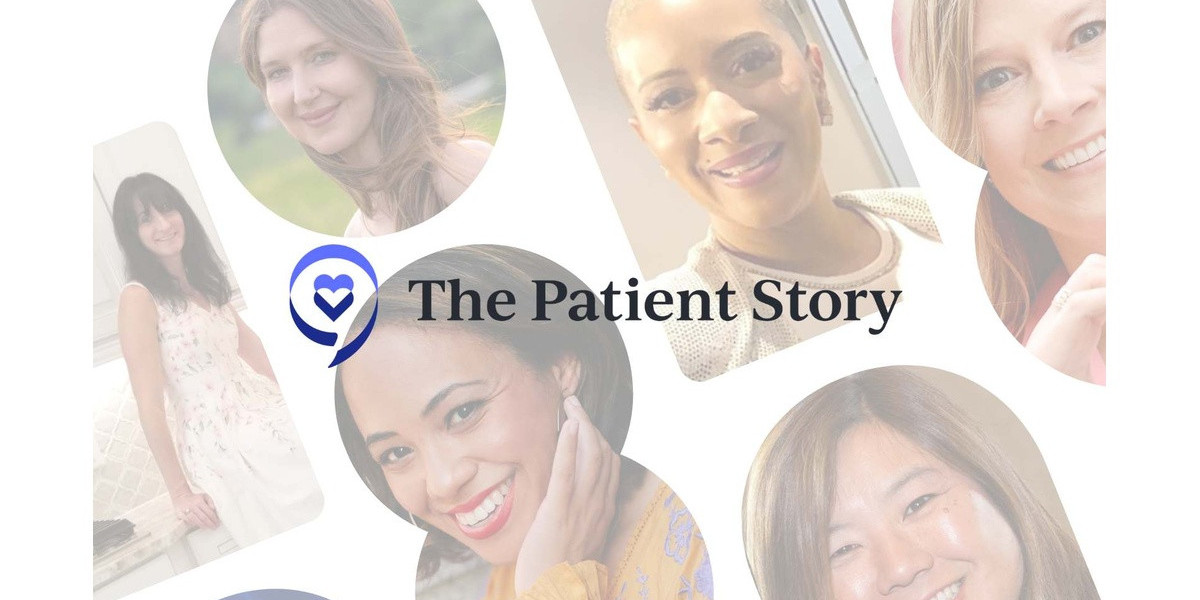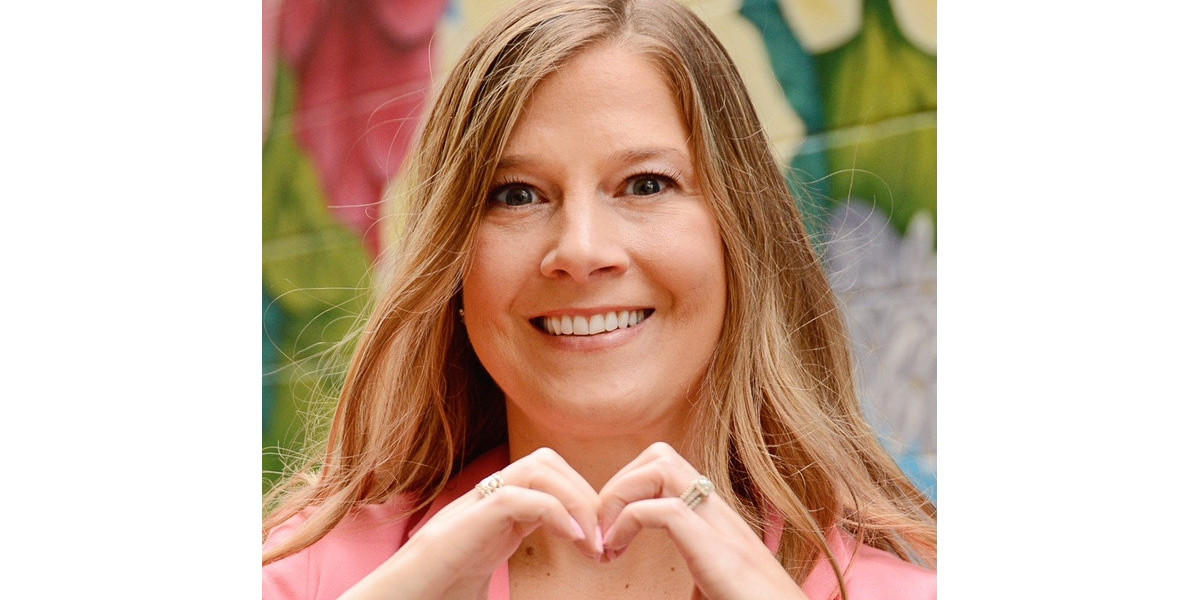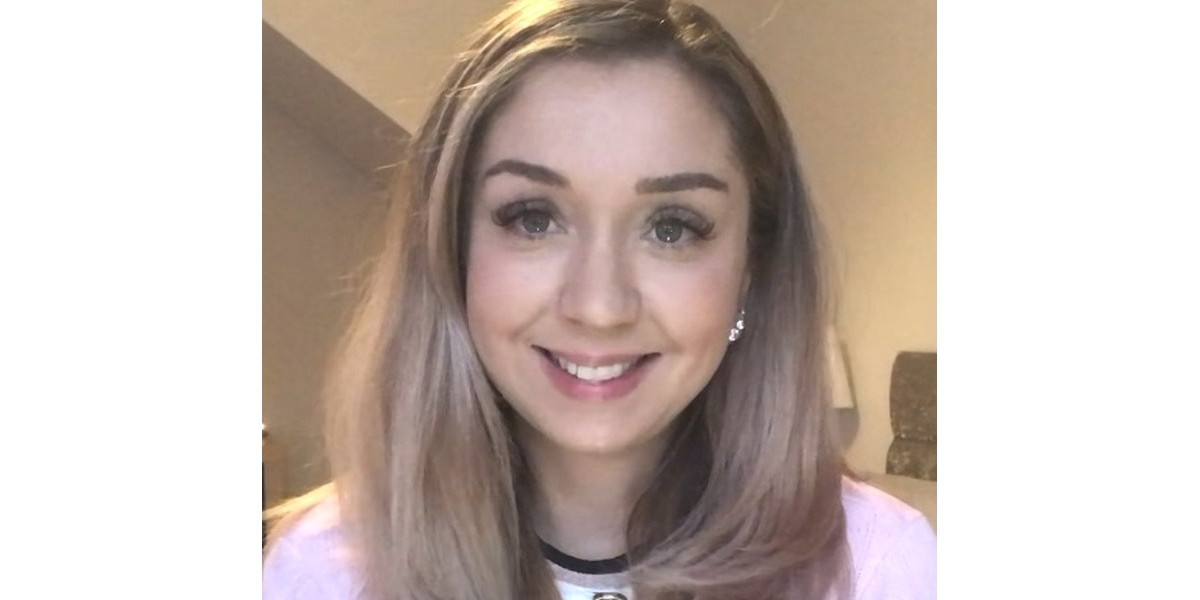Melissa’s Stage 1 Triple-Negative Breast Cancer Story
Melissa B., Triple-Negative Breast Cancer, Stage 1
Symptom: Pea-sized lump
Treatments: Chemotherapy, surgeries (bilateral mastectomy, reconstruction)
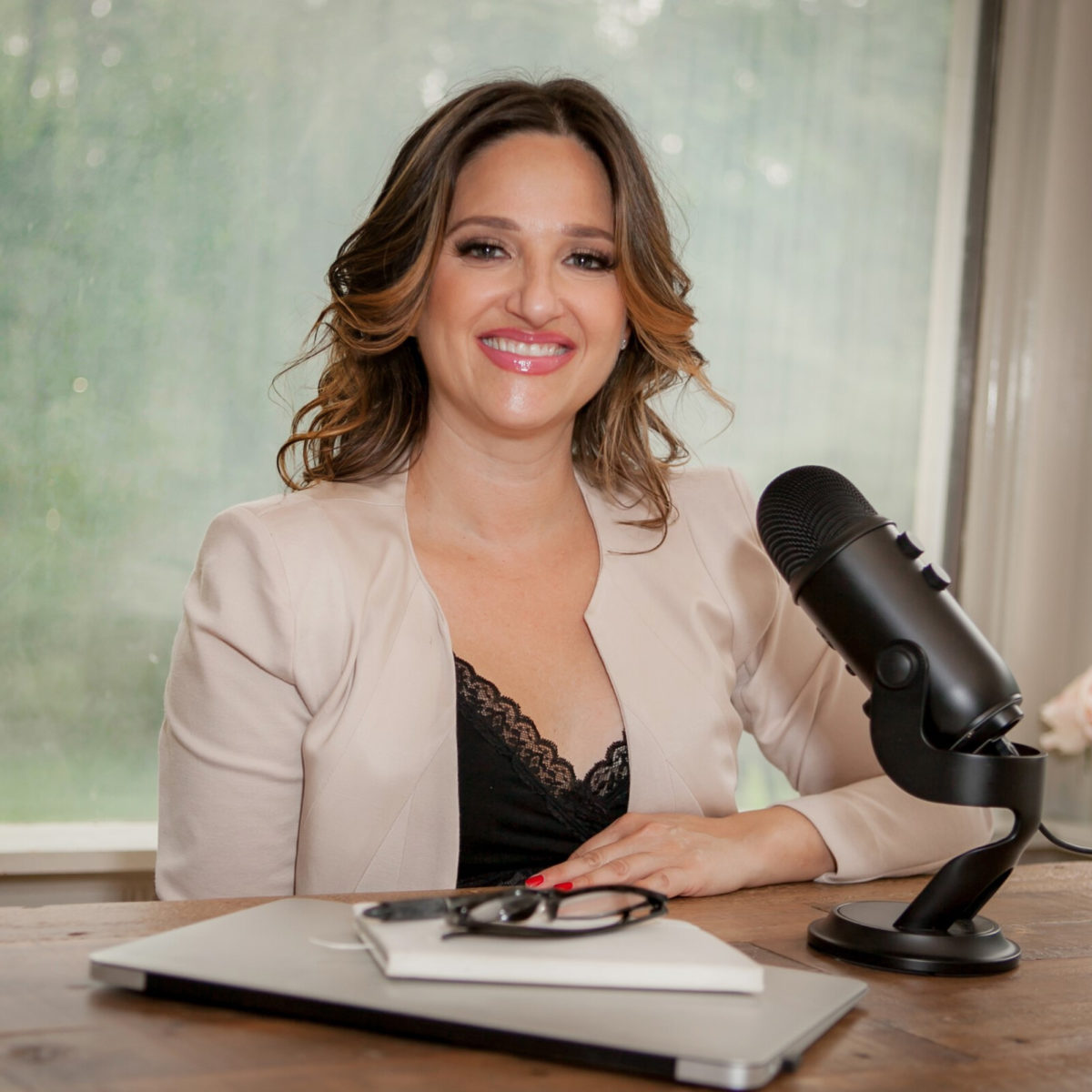
Melissa’s Stage 1 Triple Negative Breast Cancer Story
Breast cancer ran in Melissa’s family, prompting her mother to encourage her to get a BRCA gene test. Reluctantly, Melissa agreed and the results confirmed that she was a carrier of the BRCA gene. For years, Melissa was monitored biannually for breast cancer.
After a clear MRI, Melissa was given a routine mammogram and check-up. A small, pea-size lump was detected and biopsied. At the age of 42 after years of checkups, Melissa discovered she had stage 1 triple-negative breast cancer.
Melissa is now the founder of Cancer Fashionista and the Dear Cancer, I’m Beautiful podcast, as well as the board chair for the Triple Negative Breast Cancer Foundation. She shares her cancer story with us and encouragement for those on their own cancer journeys.
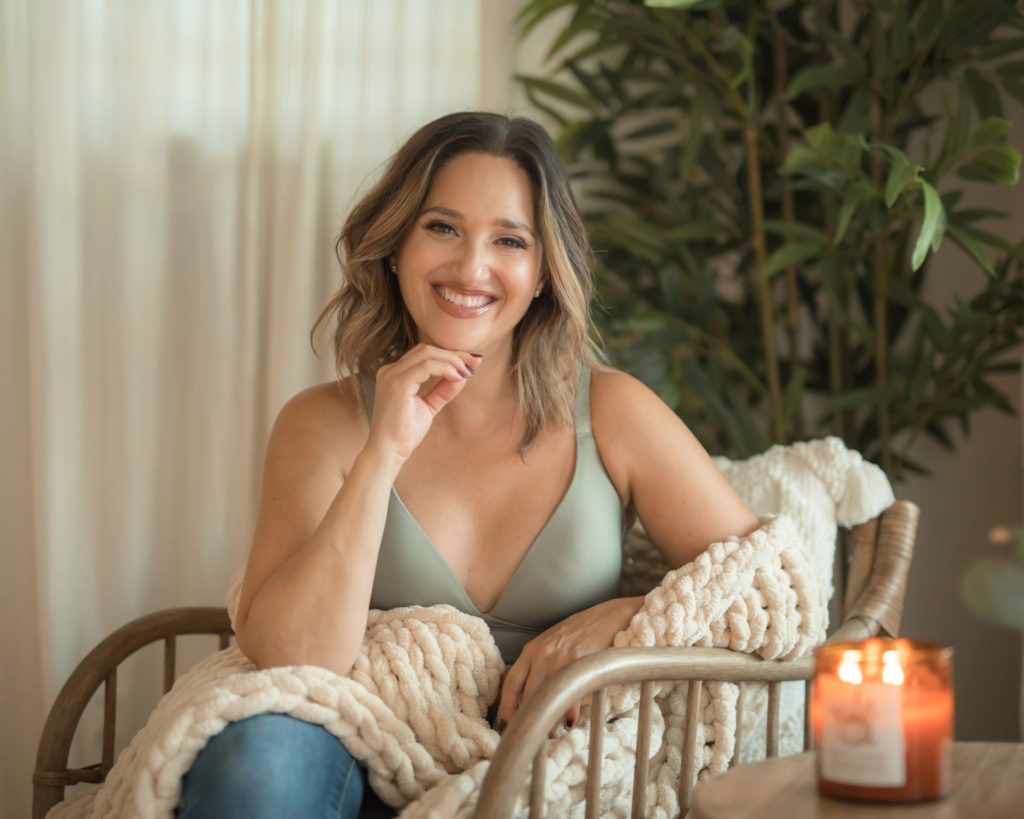
- Name: Melissa B.
- Diagnosis (DX):
- Breast cancer
- Triple-negative
- Breast cancer
- Staging: 1
- Symptoms:
- Pea-sized lump
- Age at DX: 42
- Treatment:
- Surgery
- Bilateral mastectomy
- Reconstruction
- Chemotherapy
- Red Devil
- 12 rounds
- Surgery
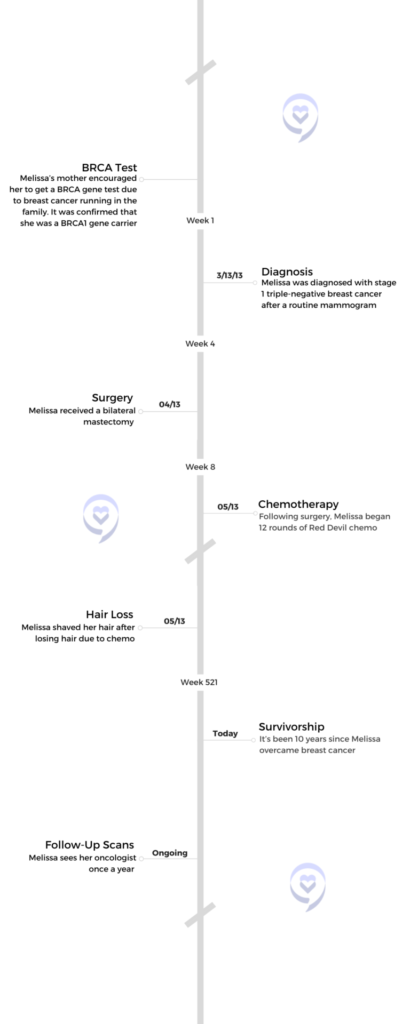
If you can, face your fear and get through each day the best that you can, and enjoy your life even as you’re going through a diagnosis and treatment.
Melissa B.
This interview has been edited for clarity and length. This is not medical advice. Please consult with your healthcare provider for treatment decisions.
- BRCA Testing & Diagnosis
- Tell us about yourself
- What were your first symptoms?
- How did you feel about getting BRCA gene testing?
- Describe your breast cancer screenings
- How long after getting the BRCA test were you diagnosed?
- Were you getting scans every 6 months during that time?
- How did you feel during your biannual breast cancer scans?
- How were you diagnosed with breast cancer?
- Did you feel the lump prior to your diagnosis?
- How did you react to your cancer diagnosis?
- Processing A Diagnosis
- Surgery
- Chemotherapy
- How long after surgery did you start chemo?
- How did you process going from surgery to chemo so quickly?
- How did you feel about chemo?
- Did you continue to see her through your cancer treatments?
- What were your side effects on chemo?
- How many cycles of chemo did you have?
- Were you getting scans during your chemo?
- What prompted a full body scan?
- Survivorship
- Reflections
BRCA Testing & Diagnosis
Tell us about yourself
My name is Melissa Berry. I’m a 10-year triple-negative breast cancer survivor. I am also the board chair for the Triple Negative Breast Cancer Foundation and the founder of Cancer Fashionista. My hobby and my work are sort of the same.
I love doing my podcast, Dear Cancer, I’m Beautiful. It’s my happy place and an incredible passion project of mine. I love spending time with my daughters. I have 2 daughters. Erica is 17 and Maya is almost 21. I can’t even believe it, as I say that. I also really love to cook and do anything outside and I love 80s music.
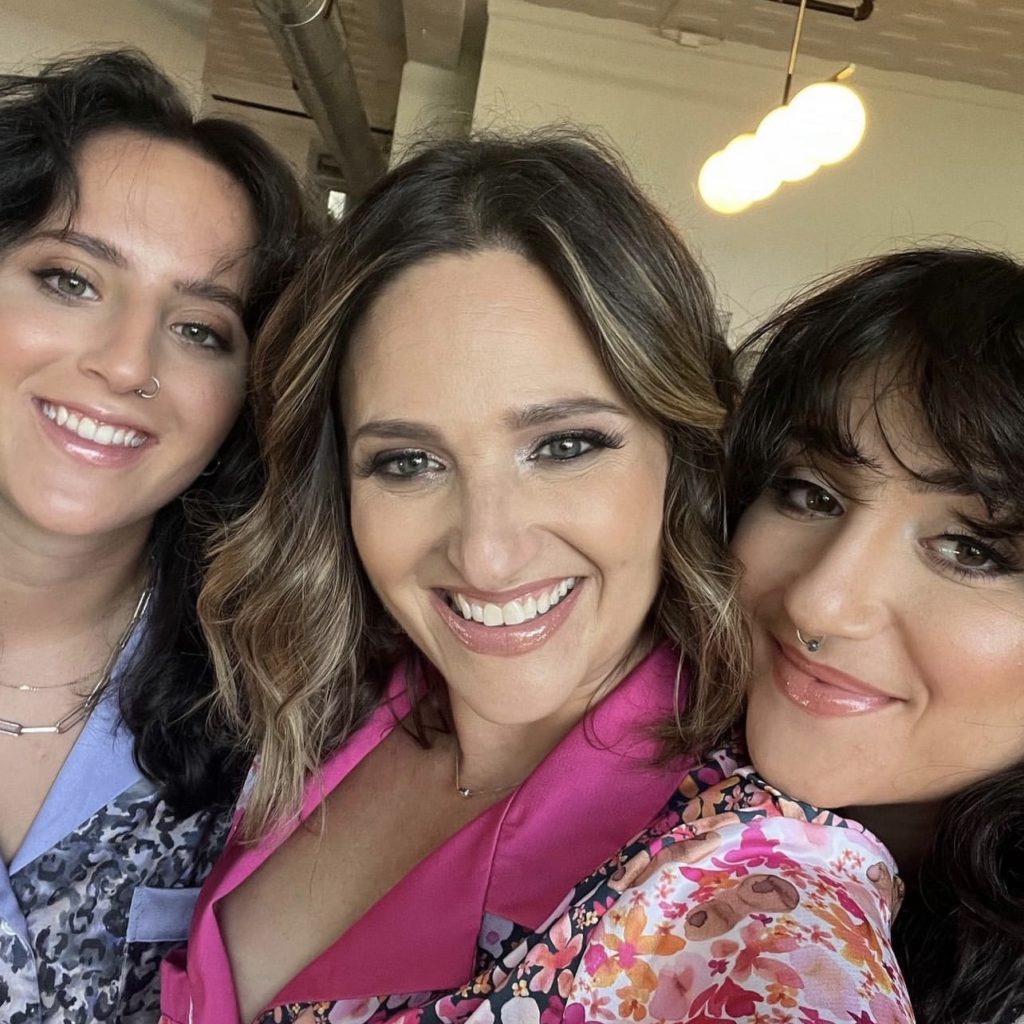
What were your first symptoms?
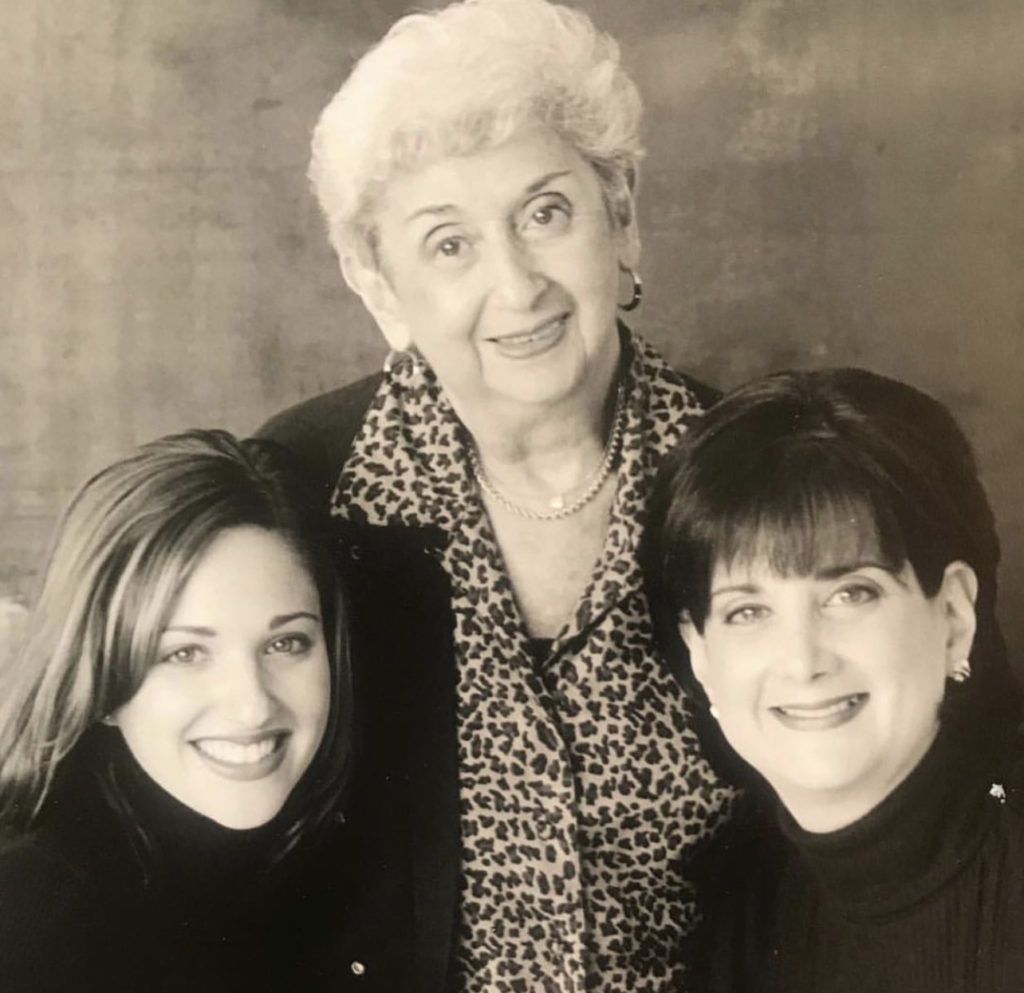
In my case, it wasn’t so much symptomatic. I was followed very closely because I was a BRCA gene carrier. So to rewind the story a little bit, there’s a lot of breast cancer in my family, particularly on my mother’s side. My mother had breast cancer, her mother had breast cancer – that’s my maternal grandmother – my maternal great aunt, who is my grandma’s sister, and my great aunt’s daughter, my mom’s first cousin, all had breast cancer. My mother was pretty adamant about me getting tested for the BRCA gene.
Around the time that I was about 32 years old, I decided to get tested for the gene and I was really afraid to do that because I didn’t want to be walking around feeling like, when am I going to get breast cancer? Instead, I shifted the dialogue with myself and I thought, this could be empowering and a roadmap to my health. My breast cancer story really began there and then I was actually diagnosed during a routine mammogram.
How did you feel about getting BRCA gene testing?
A lot of anxiety. You could ask my mom. She was bugging me and I’m like, I’m busy. I really pushed it away for a while because we’re human. It’s scary to be given the choice of knowing something like that. But knowledge really is power and I will tell you and anyone else who’s tuning in that that genetic test saved my life. My mother saved my life because, had I not been tested, I would not have been diagnosed at such an early stage and could have been diagnosed at a much later stage.
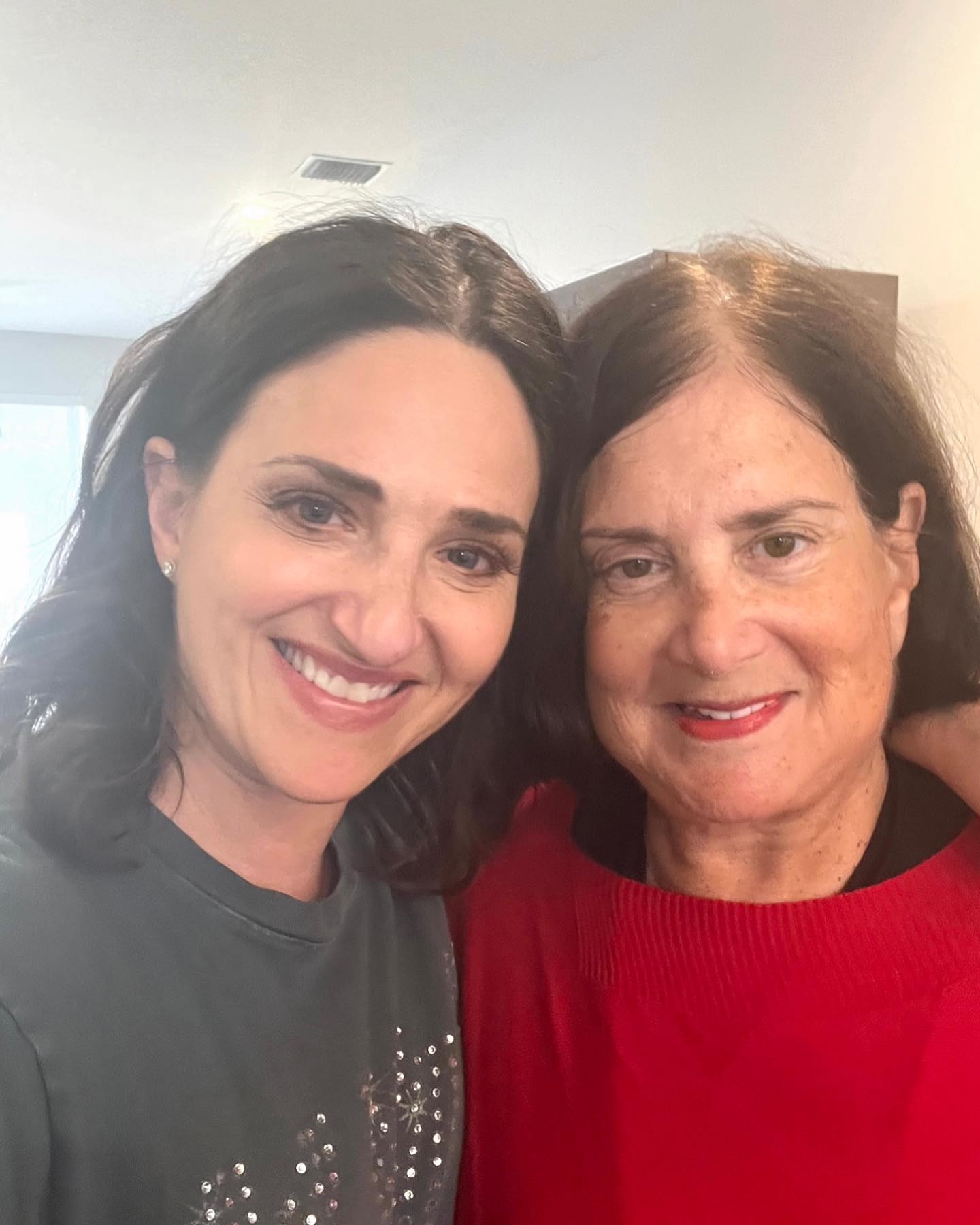
Triple-negative breast cancer is very, very aggressive and I was lucky enough to have caught it at stage 1. I’m very grateful, very lucky, and this is why I do what I do because there are just too many opportunities to miss a window like that.
MORE: Genetic Testing For Cancer
Describe your breast cancer screenings
I always like to frame these answers that everybody is different. Follow-up, protocol, and being monitored is not a one size fits all. In my particular case, it was going for an MRI, a mammogram, and an ultrasound every 6 months. It was, I call it, like a womb. I felt like I was safe, I was being watched, and I was not going to get breast cancer.
How long after getting the BRCA test were you diagnosed?
I had the BRCA test at 32 and I was diagnosed at 42.
Were you getting scans every 6 months during that time?
Yep. Exactly.
How did you feel during your biannual breast cancer scans?
I definitely felt very anxious. God, so anxious. Especially the mammogram. I got used to the MRI. You’re in a tube, they have to give you the contrasts and then the sound. Everyone’s different, but my anxiety was definitely heightened. Sometimes I would go after work and I’d be so exhausted that I would sleep through most of it. For anyone that’s listening, I recommend doing it when you’re kind of tired. Maybe at the end of the day instead of the beginning of the day.
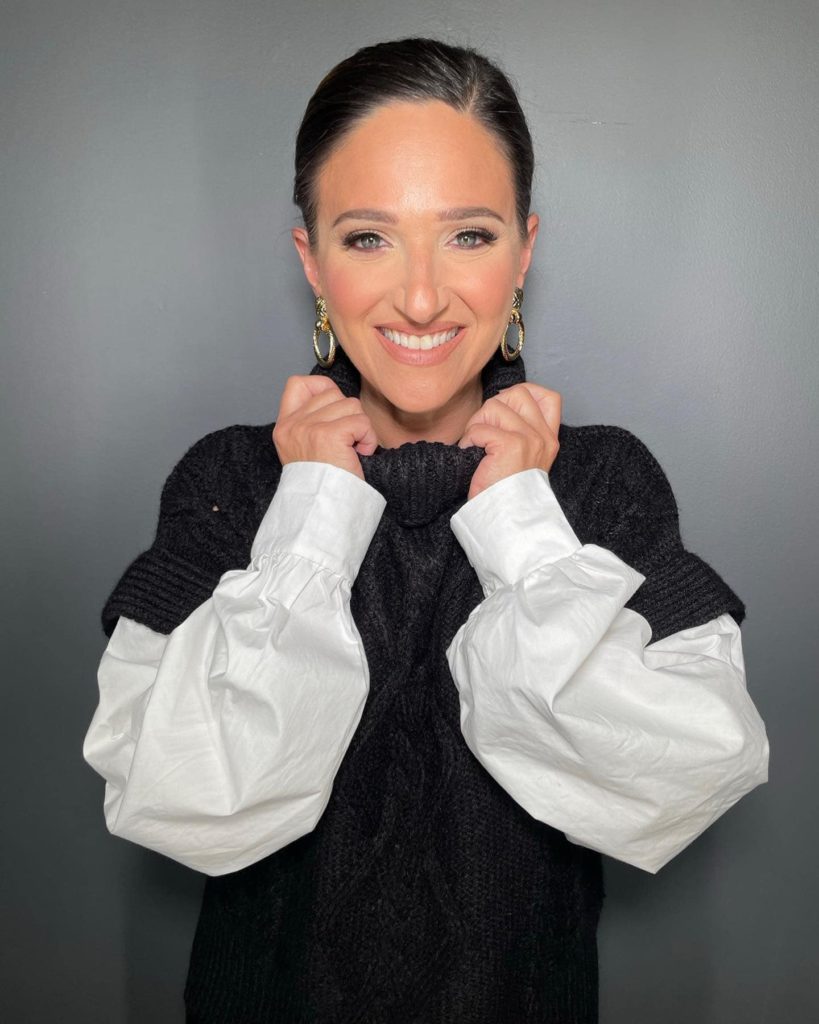
How were you diagnosed with breast cancer?
I was really caught off guard because I had just gone for an MRI. I’m like, mammogram time now. I live in New Jersey, and I was being followed in New York City at Sloan-Kettering. My doctor, who I loved was like, “Melissa, you don’t need to schlep into the city anymore. Go to your local hospital.” And I did.
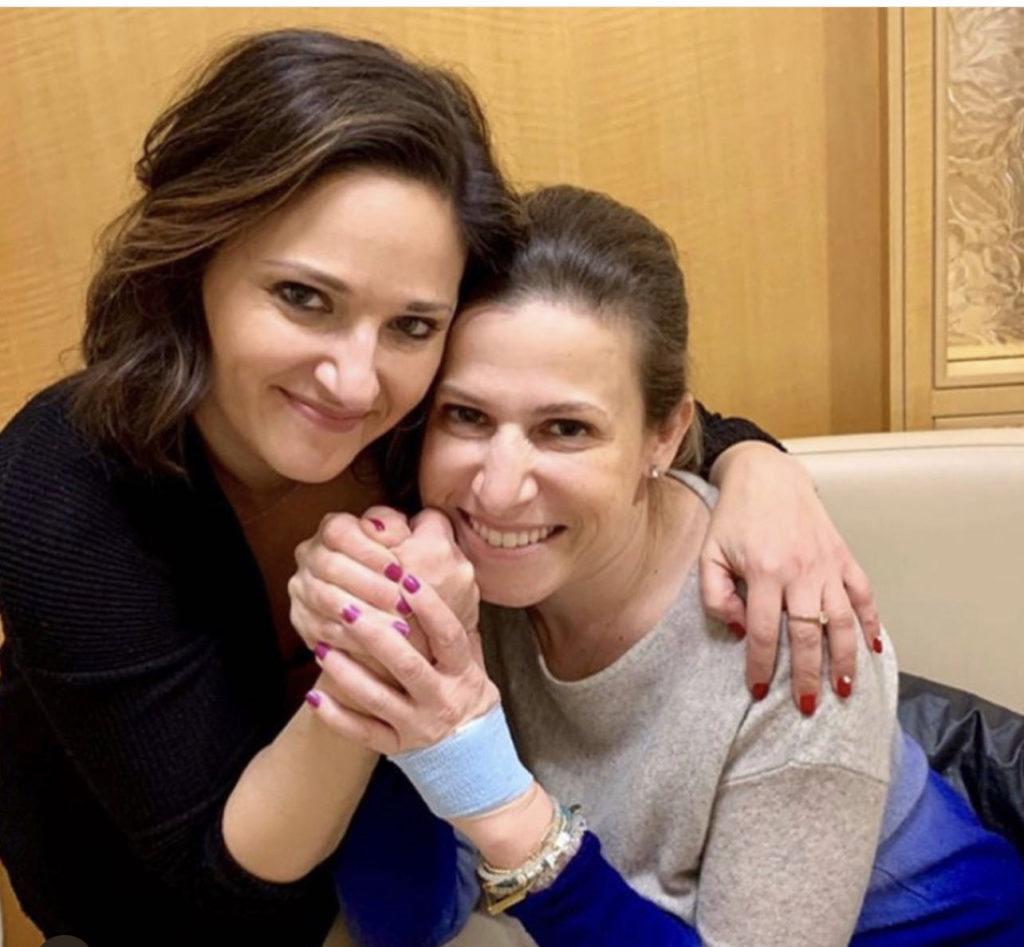
I was just going for a routine mammogram and I was not with any doctor that I normally see. I went in and the technician felt my left breast because it is protocol that they need to do a clinical exam where they feel your breast before the mammogram. The clinician felt a very, very tiny lump on my left breast and she put a sticker on it. I almost wanted to dismiss the whole thing. I’m like, that’s impossible. I just had an MRI. I’m fine.
They did a mammogram right there. They didn’t see anything. They did a biopsy and really didn’t see anything. But thank goodness, the head of the cancer center there insisted on doing a deep needle biopsy because he said he saw a shadow. Thank goodness he did that because that’s where they did detect a cancerous tumor and because of how quickly it popped up, my oncologist knew right away that it was likely triple-negative.
Did you feel the lump prior to your diagnosis?
This is why we really need to know our bodies and not beat ourselves up if we miss something. Or maybe you dismiss it. This is why we rely on our doctors also to monitor us.
No, it was so tiny that I thought I was imagining things. I really didn’t think anything of it. And like I said, I had just gone for an MRI. But this is why it’s so important to really know your body. If you’re like, that feels a little funny. Because I’ll tell you, it felt like if you put a pea inside your breast and it was just kind of floating around. It felt tiny, tiny, tiny and I really didn’t think it was.
I didn’t realize it was there until she was like, “Don’t you feel that?” It was almost undetectable. This is why we really need to know our bodies and not beat ourselves up if we miss something. Or maybe you dismiss it. This is why we rely on our doctors also to monitor us. That’s why it’s so important to get mammograms at an earlier age so that you have this baseline.
How did you react to your cancer diagnosis?
One of the toughest things that I ever had to hear. I remember feeling like the room was spinning, and I just kept thinking, this isn’t really happening. Until they told me, I really didn’t think that anything was wrong. I was concerned but I had it in my head that I had this clean MRI. When the doctor came into the room and said, “I see a shadow,” that’s when I knew that something was really wrong.
I’ll never forget, my phone was really low on battery. I remember standing outside of the exam room in my robe asking someone for a charger. I just felt so alone and afraid because it wasn’t the sort of checkup or appointment where you suspect something, so maybe you bring your partner or your family member with you. I was by myself.
They did the deep needle biopsy and said, “Why don’t you go ahead in the waiting room? We’re just going to take a look at it.” Then when I saw the doctor come with 2 nurses, I’m like, here it comes. He said, “You have breast cancer.” I remember thinking to myself, it must not actually be like the breast cancer. This is a mistake. I don’t know what’s going on. It was very surreal. Very surreal.
MORE: Reacting to a Cancer Diagnosis
Processing A Diagnosis
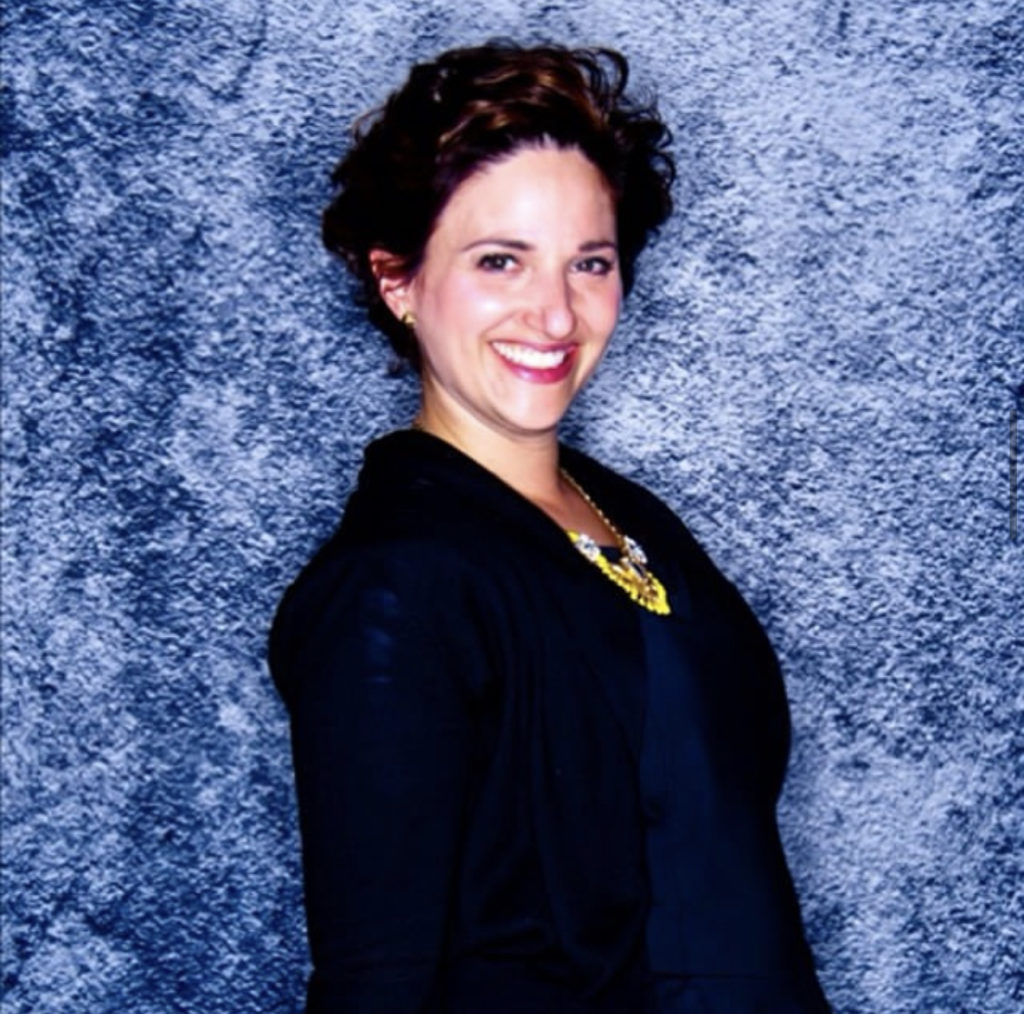
How much did you know about triple-negative breast cancer before your diagnosis?
Zero. I didn’t even know that there were different types of breast cancer. That’s why I am so passionate about my role as board chair for the Triple Negative Breast Cancer Foundation because it is so important that we know that, first of all, there are different types of breast cancer and not to Google it if you have breast cancer because there are not only so many different types but so many different treatments.
What is triple-negative breast cancer?
Triple-negative breast cancer lacks estrogen and receptors so it’s very difficult to treat. There’s chemotherapy and surgery and there’s so much work that’s being done and so much research. We are really moving the needle and starting to see some change there because we used to say that there was no targeted treatment but we’re getting closer and closer. It is definitely trickier and more aggressive.
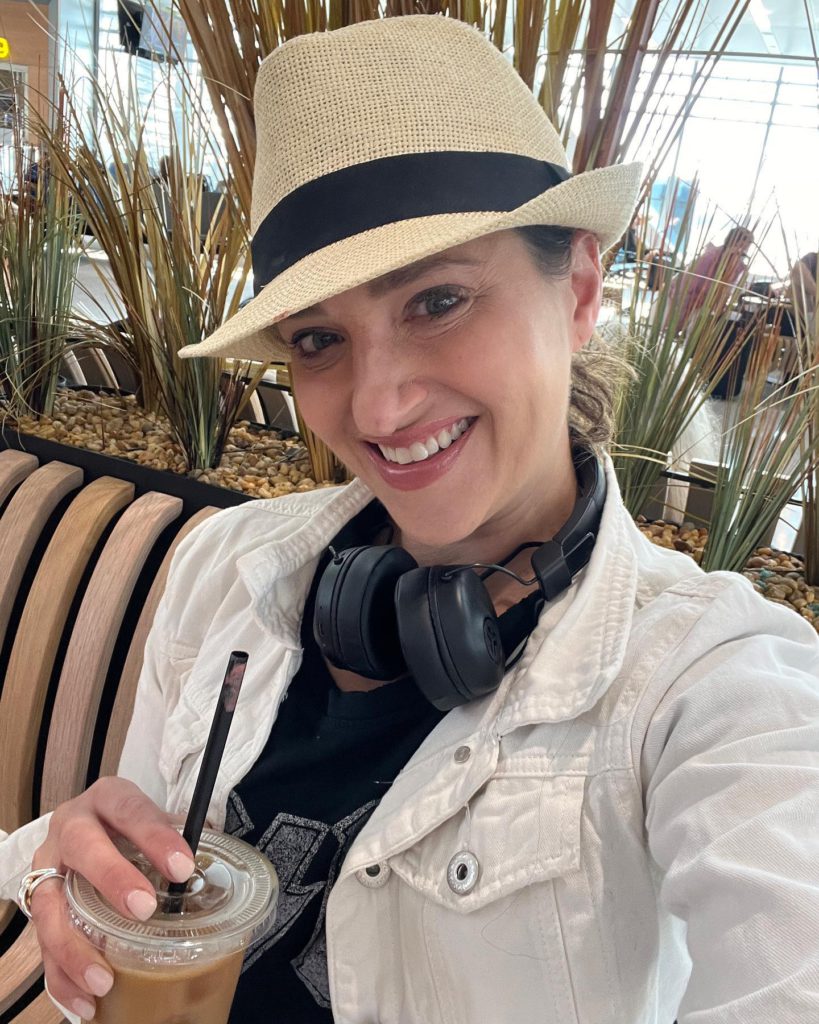
What happened after your diagnosis?
The next day I saw my breast surgeon. It was pretty imminent that it was surgery and chemotherapy. We all have choices. We all have options. But the way that it was presented to me is that if you want to get rid of this cancer and live, then this is what we need to do. I put my trust in my doctors and thank God that I did. I did have chemotherapy and a bilateral mastectomy.
I had the surgery first then the chemo. For anyone listening, I’m not offering medical advice. This is 10 years ago and it depends on the stage and the type. There are so many different ways to deal with it, but in my case, that’s how we did it.
MORE: Cancer Treatments & Decisions
The emotional aspect of breast cancer surgery
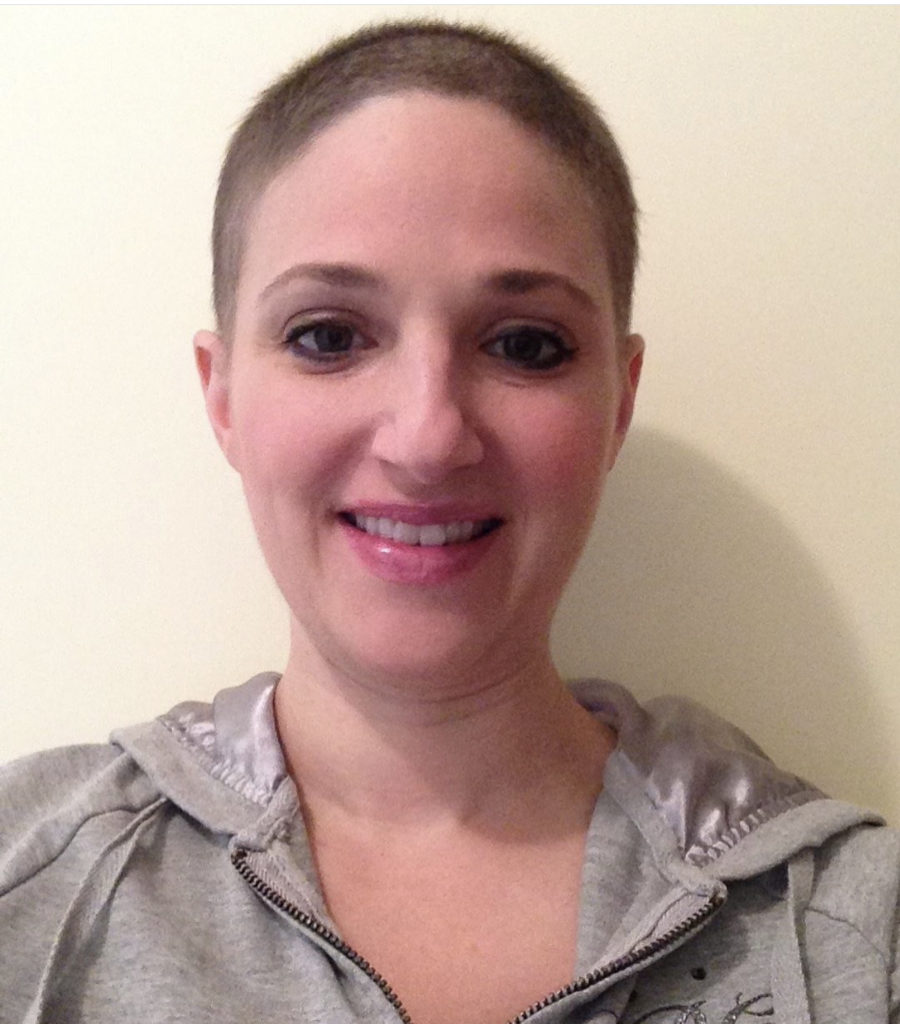
I remember actually looking at them and saying goodbye because I didn’t really know how else to deal with it. It was really, really, really hard because they’re you.
There’s a really emotional side to this because they’re your breasts. When you’re a little girl, you’re like, look, they’re growing. They’re a part of your body. They’re a part of your femininity. I was lucky enough to have children. I nursed both of my babies. We’re always trying bras on like, how do they look? It’s a part of our anatomy. It’s part of how we carry ourselves.
The night before, you have to do a special wash before surgery. I remember actually looking at them and saying goodbye because I didn’t really know how else to deal with it. It was really, really, really hard because they’re you. It’s your body. The way that I tried to cancel it out is like, okay, you’ve served me. Thank you very much and now it’s time for the cancer to go bye-bye. Instead of looking like a loss, I’m like, I’m going to win and I’m going to get rid of the cancer.
Surgery
Why do you wash prior to surgery?
It’s to sterilize, to get rid of any potential germs, or to prevent infection. There’s a clinical name for it, Hibiclens.
Were you given the option of having implants or being flat?
I did have a bilateral mastectomy. I was given the option of implants. There wasn’t much conversation about whether I wanted to be flat or not. I know that’s more common now, which makes me so happy because I think we should know what all of our options are and never assume anything. In my case, I did want to reconstruct my breasts and I wanted them to be as close to my natural breasts as possible. I did go the implant surgery route.
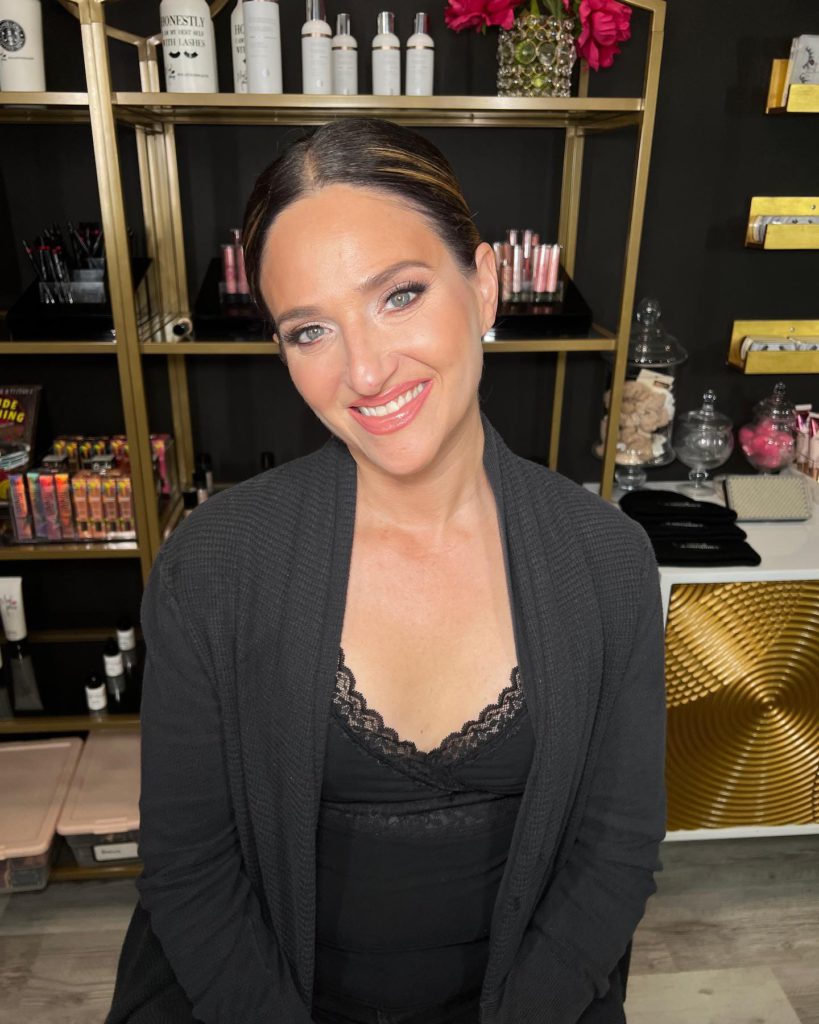
How long was the surgery?
It was several hours. The recovery wasn’t terrible, but reconstruction in some cases could be multiple surgeries. Again, everyone is different. When you first have a bilateral mastectomy, if you are going to reconstruct, they put expanders inside the chest cavity so that they can then fill them with fluid to see what size your chest can accommodate. Then you have what’s called swap surgery or implant surgery where you have the implants put in. That was how I approached it.
How long did it take for you to recover?
I forget, but it was a while. I guess it depends on how you define recovery. Was I able to lift the laundry basket right away? No, but you can walk and slowly do things and the doctors monitor you. After a certain time, you can go back to regular exercise. But it was some time until I was able to really feel like myself again.
Chemotherapy
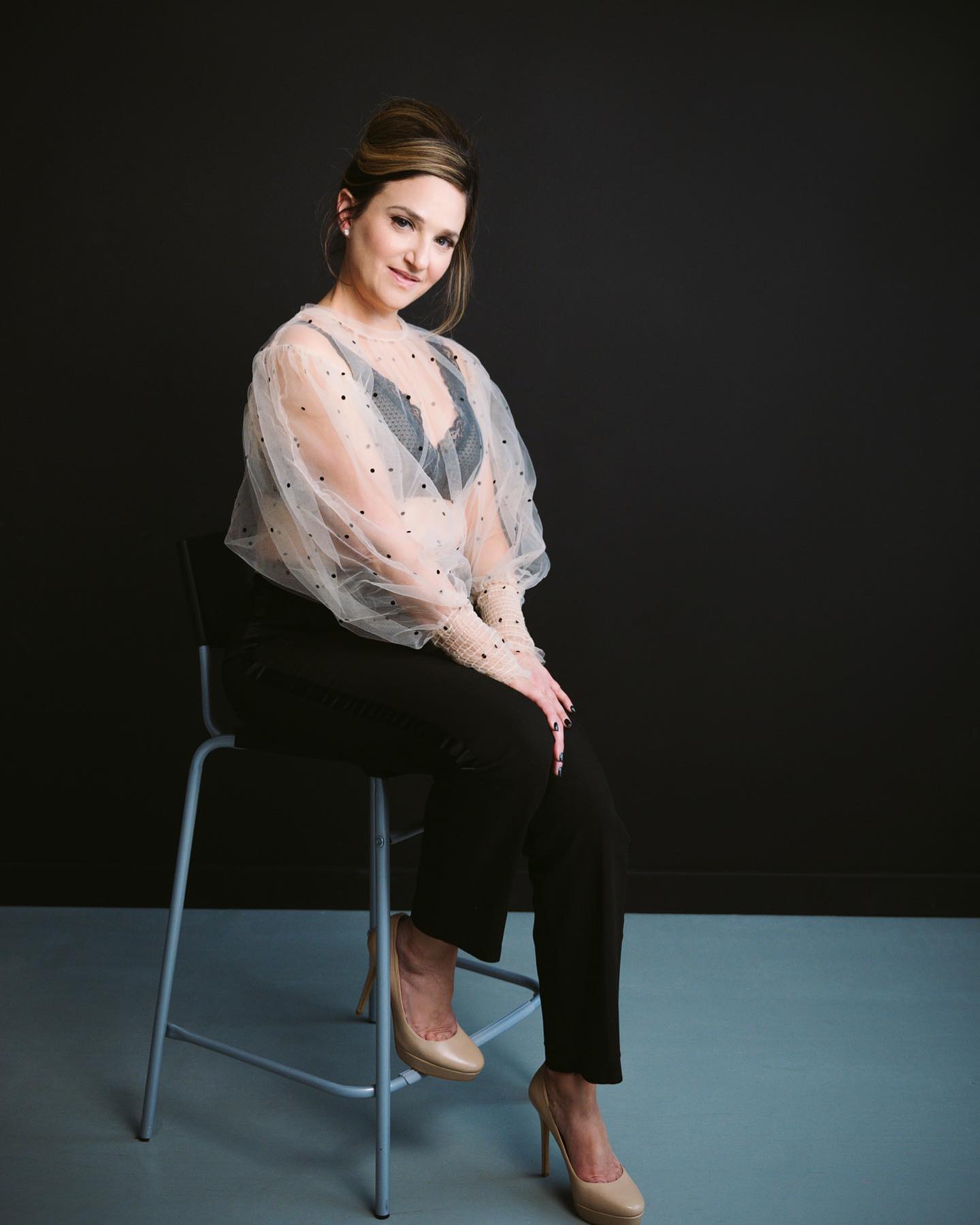
How long after surgery did you start chemo?
It was pretty much right after.
How did you process going from surgery to chemo so quickly?
Honestly, 10 years later, I still feel like I’m trying to process. Sometimes I’m like, that happened. It’s wild. One thing I taught myself was to take baby steps and that’s what I tell the newly diagnosed. If you look at your whole schedule of appointments and all of the steps and all of the surgeries and all of the chemo, it’s too overwhelming. I like to not even do it day by day. I say hour by hour because it is incredibly overwhelming and it’s a lot. I compartmentalized everything when I was going through surgery. I tried not to think about the chemo too much or to overwhelm myself with knowing that that was going to be another wave. I really tried to stay in the moment and just get through each day the best that I could.
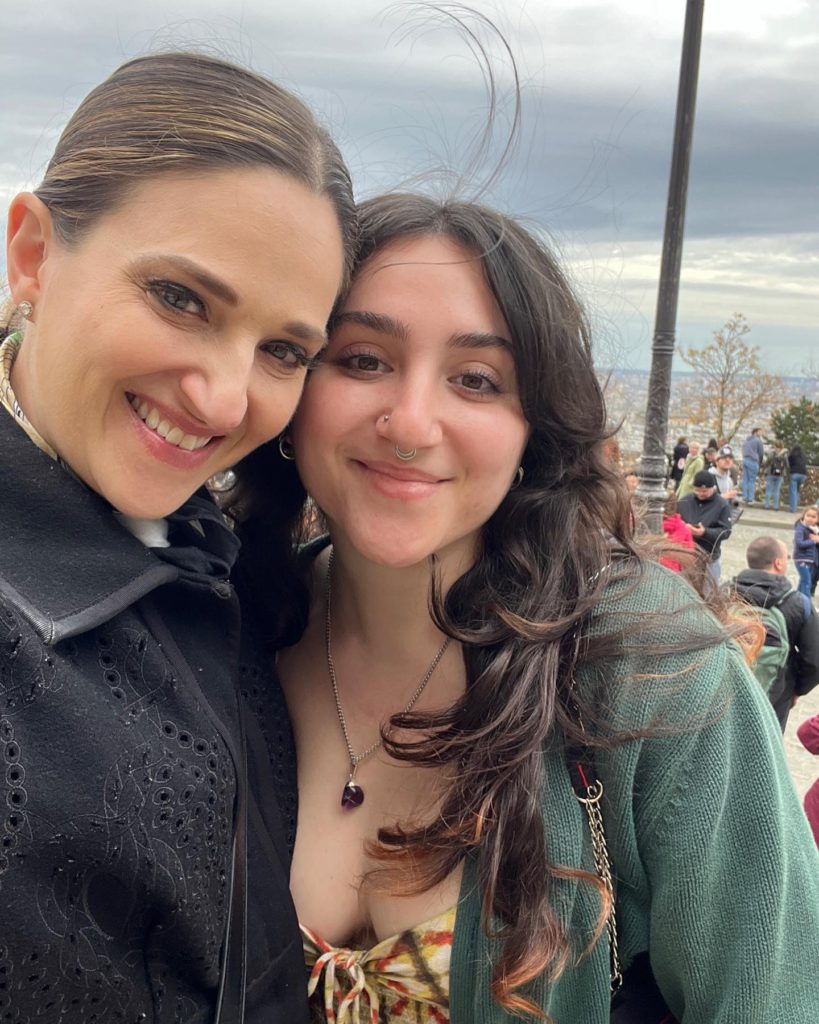
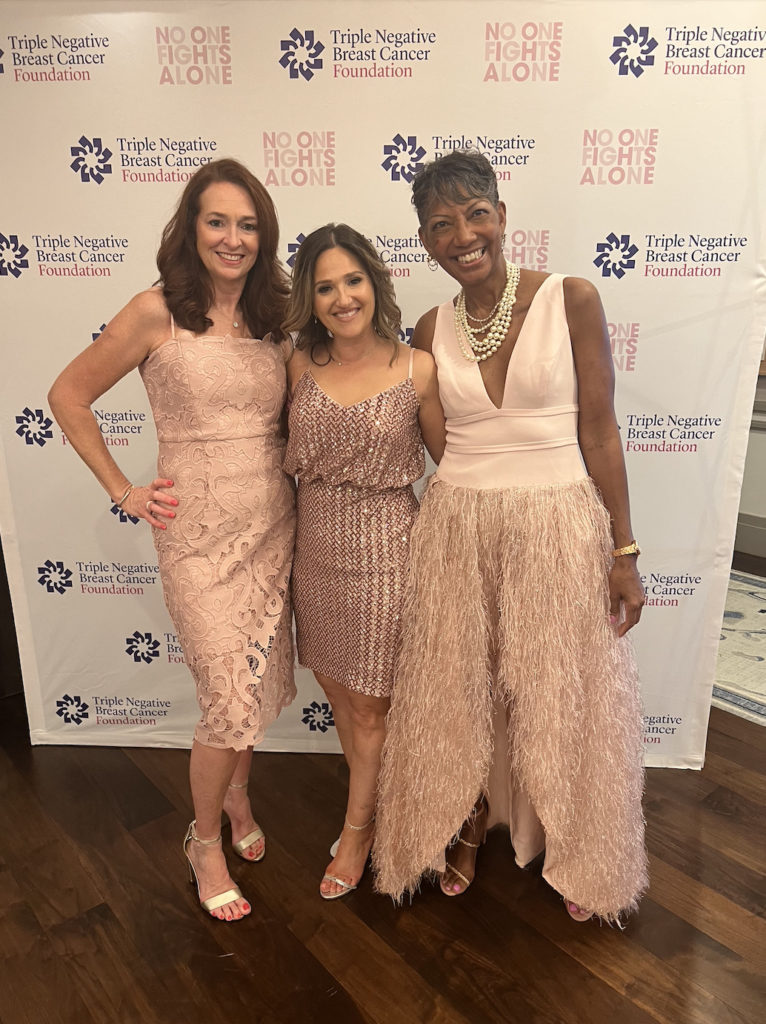
One thing I taught myself was to take baby steps and that’s what I tell the newly diagnosed…I like to not even do it day by day. I say hour by hour because it is incredibly overwhelming and it’s a lot.
How did you feel about chemo?
I was scared to death, honestly. I was scared out of my mind. I was afraid to lose my hair, I was afraid to lose my life, not in that order. My lashes. I was afraid that I wouldn’t be able to be a good parent. Oh, my God. I didn’t mean to get emotional. I was afraid of everything. Everything seems really scary.
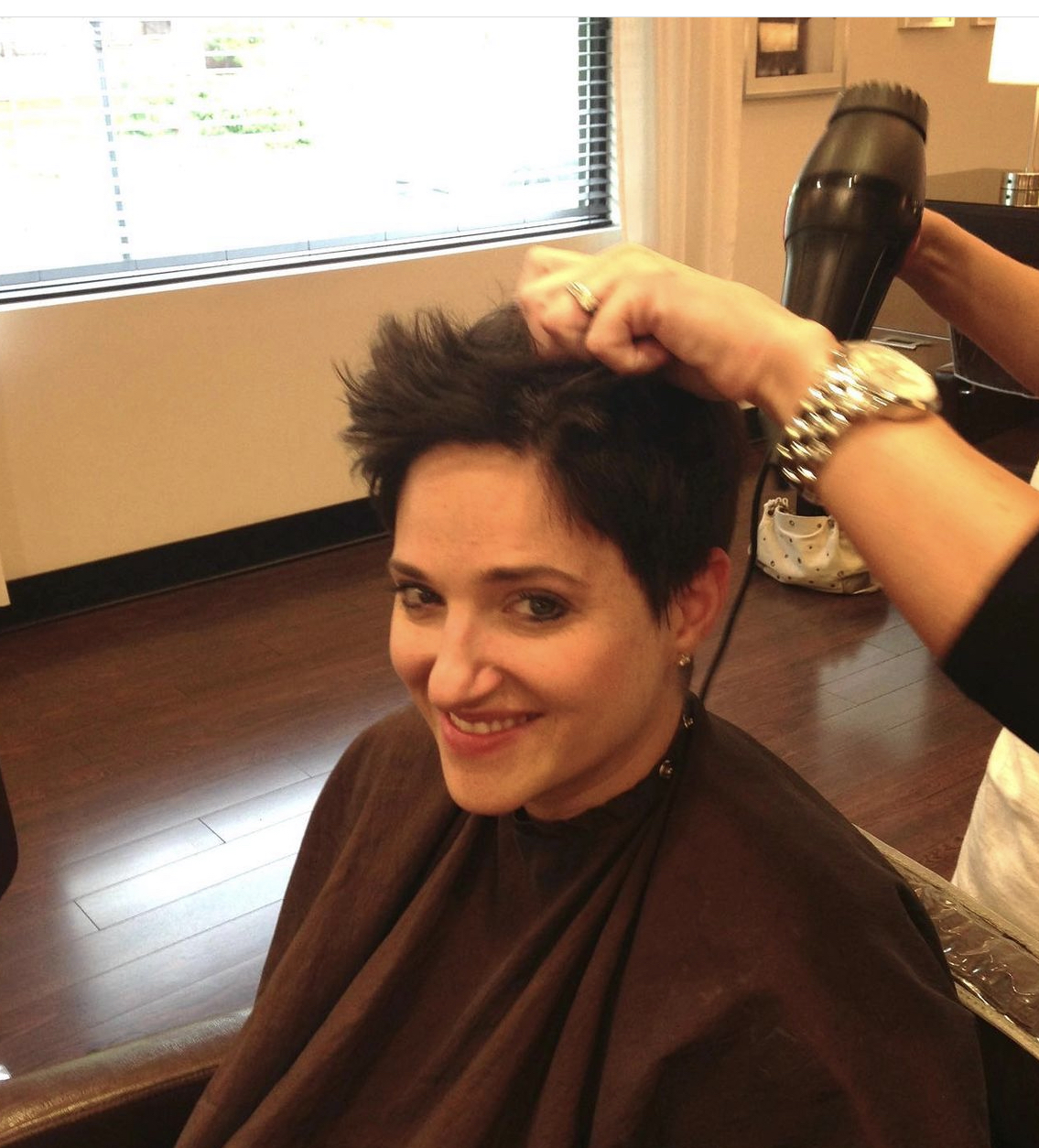
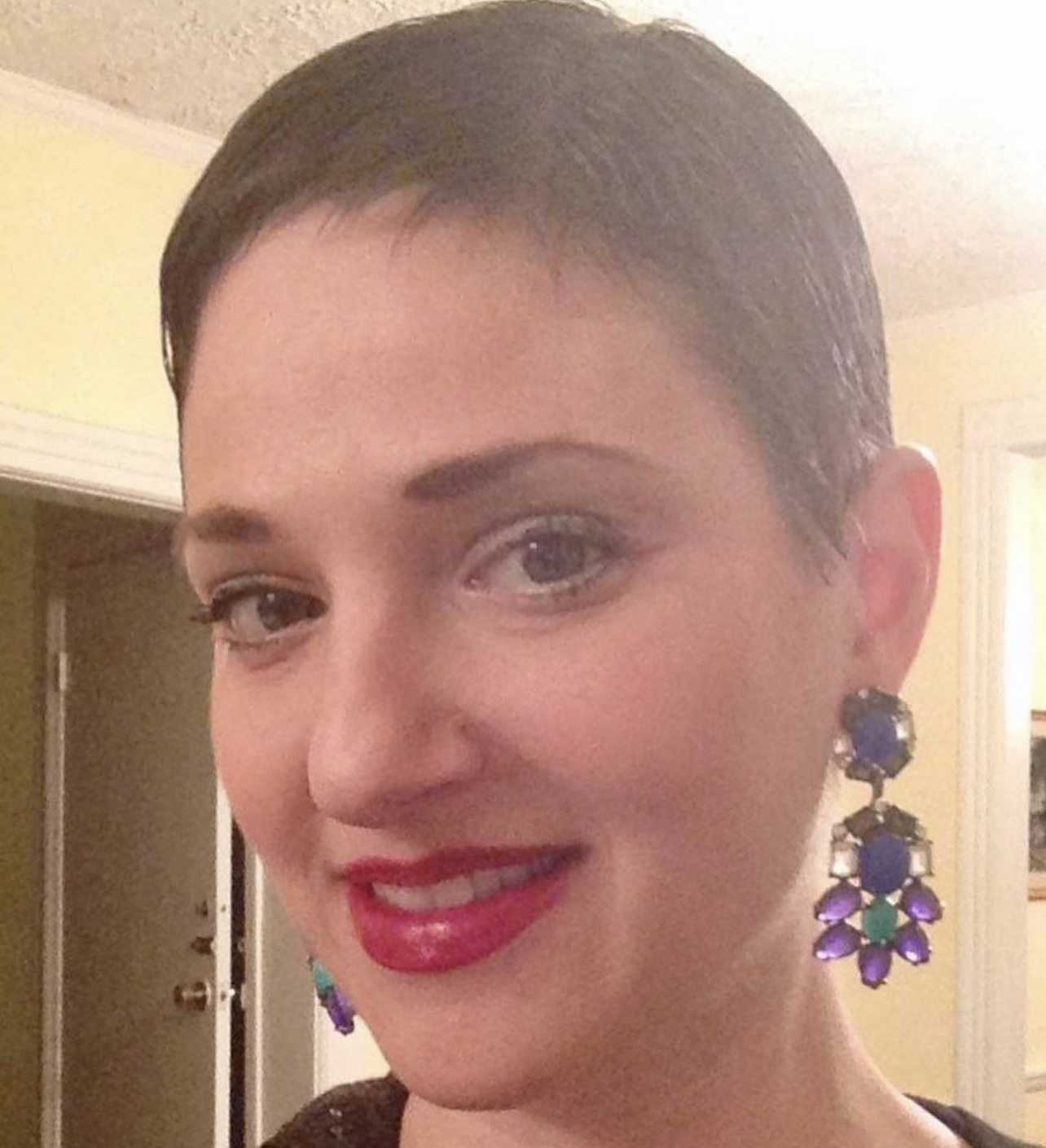
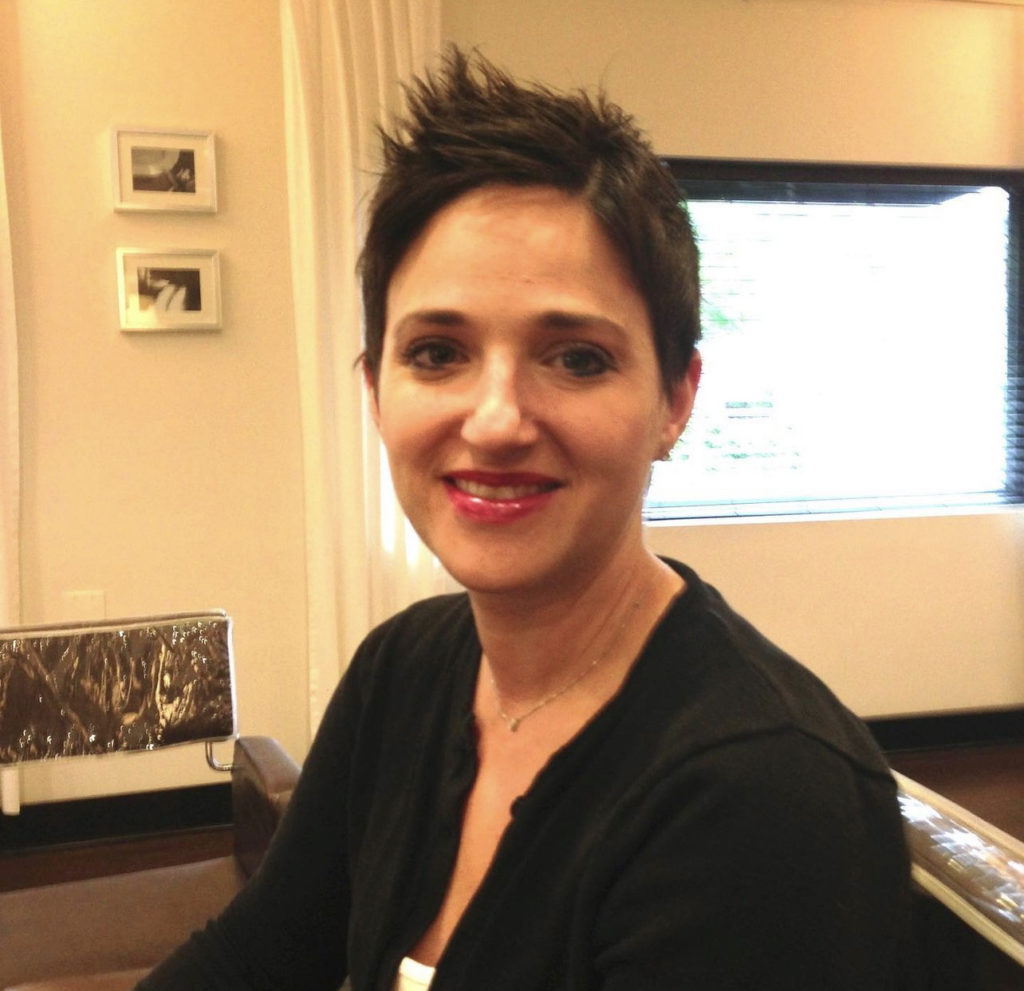
I’m not very religious. I just felt like I needed to believe in something. A friend of mine told me about an energy healer, and now I meditate and I love Reiki and all this stuff, but I never was into any of this. I went to an energy healer who lives near me and she performed Reiki and I remember crying. I was so scared of chemo, I’m like, “I don’t want to die.” She said, “I want you to do something for me. Take your shoes off.” I was like, what? She’s like, “Take your shoes off. I want you to put your feet on the ground.” I still do this to this day, I will put my feet on the ground. And she said to me, “Right now is the only guarantee that any of us have. Anybody.” That grounds me and it’s really hard to believe that. She also told me, “When you’re looking at that bag of chemo juice” – they call it the Red Devil – “look at it as your light. It’s your light, your bridge to the next part of your life.”
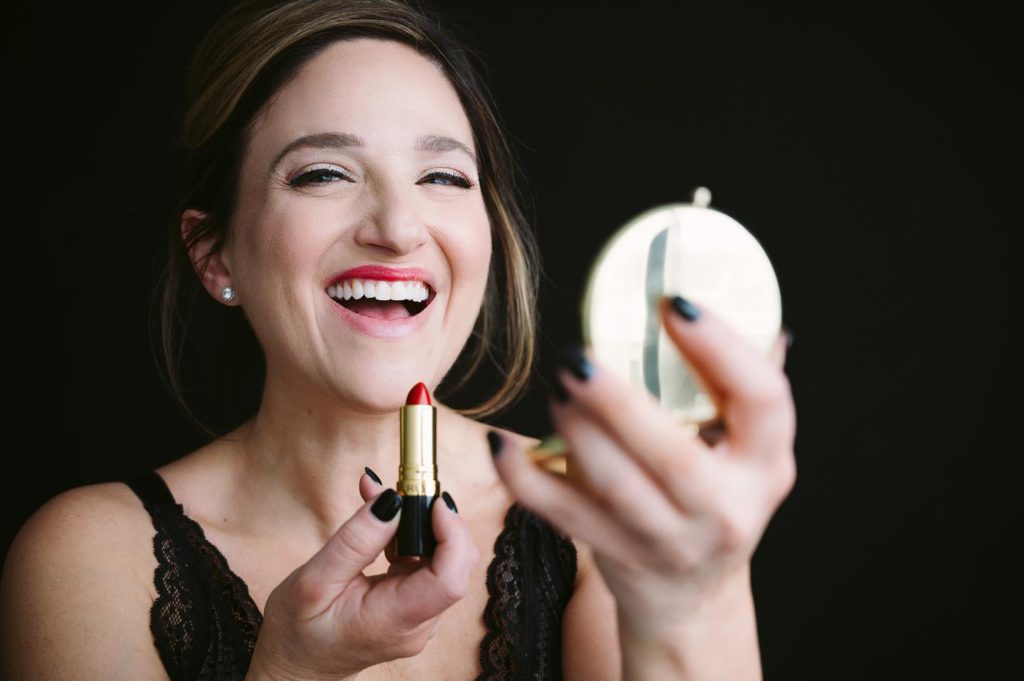
For those that are metastatic that are listening, it could bring you more life and longevity and even more years. Don’t look at it as a scary thing that’s going to hurt you. It’s so hard because the symptoms can be very debilitating. That’s how I had to grab onto something.
Did you continue to see her through your cancer treatments?
I did. I worked with her through chemo. I still have my little meditation area. I have this crumpled-up piece of paper, it’s 10 years old, but there’s a mantra on there, and I still read it to myself every day. It’s about life, that we create miracles, that we’re all part of that cycle, and to believe in miracles.
What were your side effects on chemo?
When you have not done anything, I had never had chemo before, I had no idea what to expect. The one thing I wish I had known is the emotional side effects of the medication. I could joke about it now, but I remember after getting my steroid injection, I was like superwoman for an entire day. I would have such a crazy amount of energy. I’m sure a lot of people listening will be able to relate to this. I would clean the entire house, I would make enough food for the entire week and then I would collapse. I took advantage of those times so that I could prepare the house and do things. It was a wild roller coaster that I wish I had known more about.
One of the first questions I had was, Oh my God, I’m going to be throwing up the whole time. I’m going to be nauseous. My oncologist said, “Melissa, if you’re nauseous, then we’re not doing our job.” I didn’t have a tremendous amount of issues with that because I was bouncing out with medication.
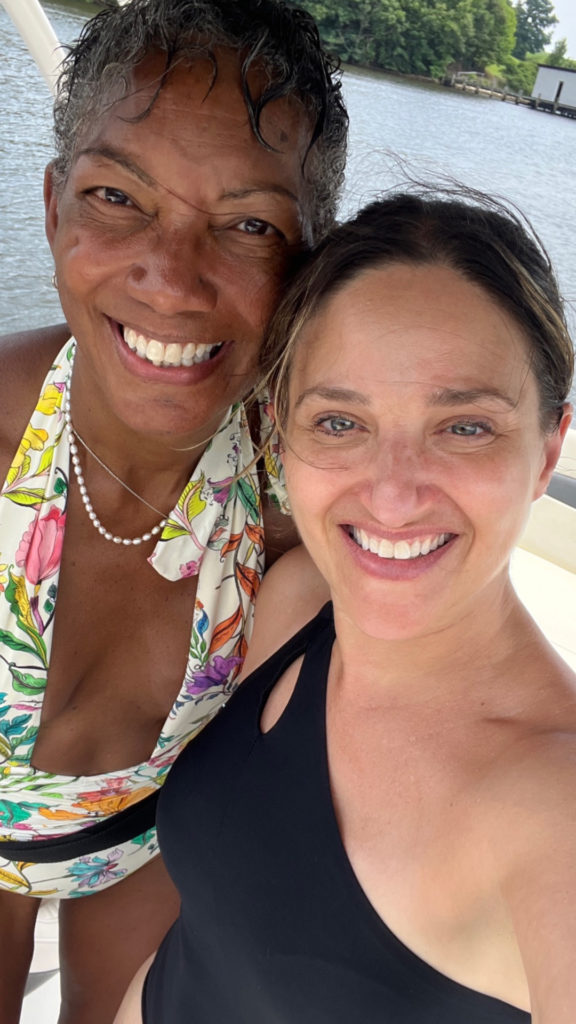
The side effects, especially with my type of chemotherapy, it’s layered, it’s progressive. The first infusion, I’m like, I feel great. What’s the deal? Then as you go, you get fatigue, that really got me. Also, my appetite was weird. One minute I didn’t want to eat anything, and then it was almost like being pregnant, like a weird craving for mac and cheese out of nowhere. I remember at one point I couldn’t even look at chicken or fish. Again, everyone is different.
How many cycles of chemo did you have?
I had 12 cycles.
Were you getting scans during your chemo?
It was primarily after the treatment. I was very closely monitored and then they would stretch it out. In my particular case, there were not a tremendous amount of scans. There was one white knuckle moment where they did want to do a full body scan and that was very upsetting and scary, but I did. Thank goodness, everything was fine, but it was very scary.
What prompted a full body scan?
There was a blood test and there was a level that was a little bit of a red flag, and that’s what prompted the test.
Survivorship
Were you NED post-surgery?
Yeah. I had no lymph node involvement, luckily, and that’s why I was diagnosed with stage 1. I don’t think they could have considered me NED after the surgery because even though the tumor was removed, the reason we do chemotherapy is to annihilate any cells that could have escaped. So to the best of my knowledge, I am NED.
Describe what survivorship has been like for you
I continue to see my oncologist. It’s weird to say that it’s just annual now and it took me a while to get used to that. It’s a weird thing with cancer. A lot of us don’t want to be told, Alright, you’re dismissed. It’s like, No, no, no. Please keep watching me.
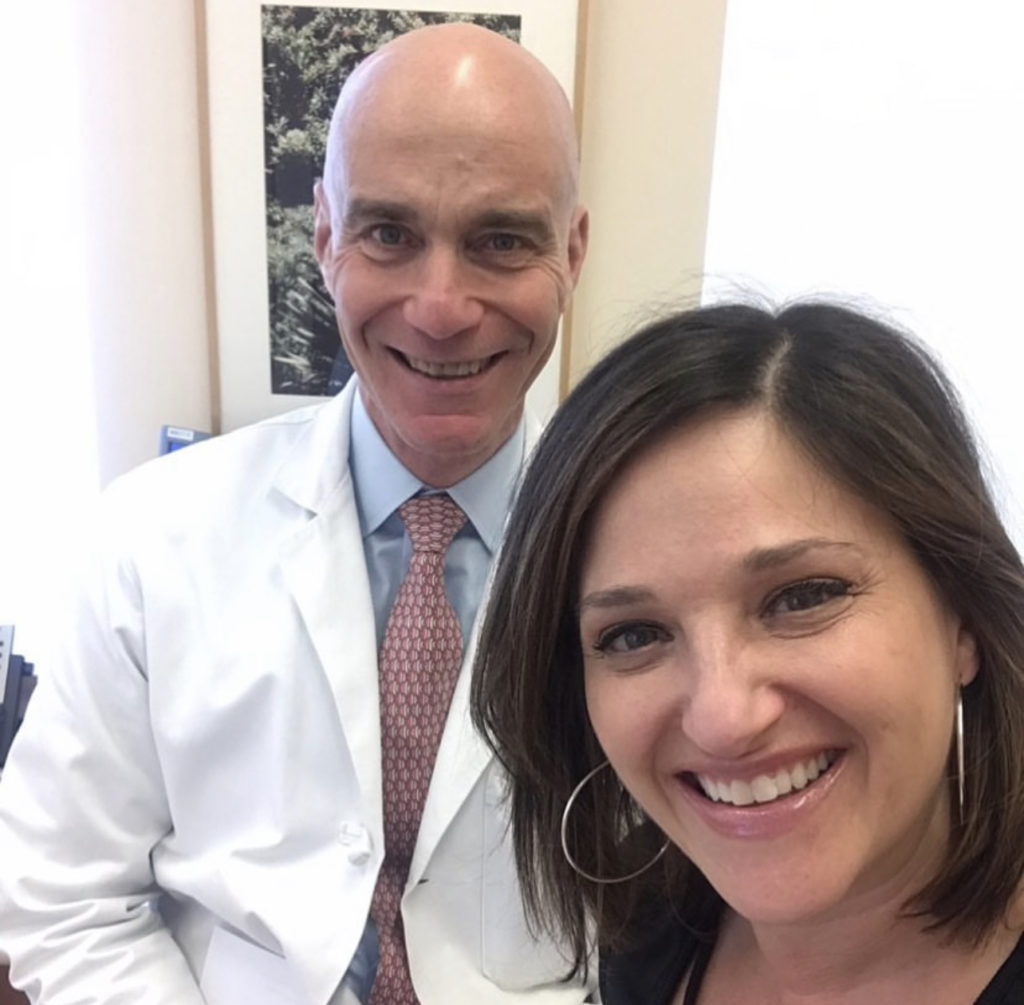
My oncologist was in the military, so we had these funny little inside jokes, like right before chemo, he would pat me on the back and be like, “Locked and loaded.” On my last
